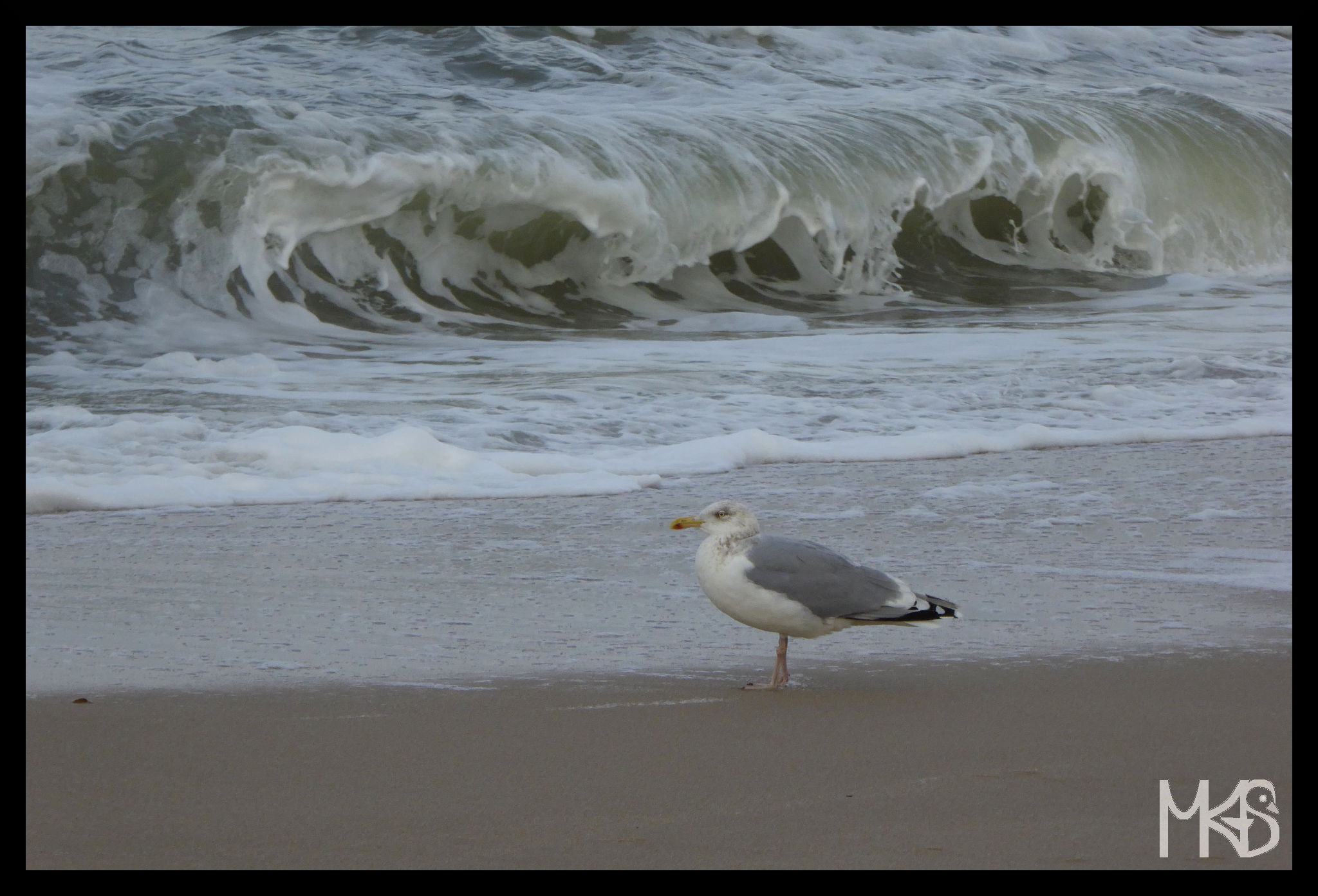
Germany is not a landlocked country but has shores to not only one sea, but two – the North Sea and Baltic Sea. And guess how they’re called in German – “Nordee” and “Ostsee” (“ost” means east), respectively.
Germans use a word “sea” (in German “See”) for lakes and seas in their language, but using different articles – masculine article + “see” = lake, feminine article + “see” = sea.
In each language we can find some false friends. So don’t be surprised when you talk with Germans in English, and they call as “sea” both lakes and seas.
__________________________________________________________
Niemcy, podobnie jak Polska, mają i góry, i morze. Jednak mają dostęp nie tylko do Morza Bałtyckiego, ale i do Północnego. Po niemiecku Morze Bałtyckie to Ostsee (dosłownie tłumacząc – “Morze Wschodnie”), a Północne to Nordee. Niemieckie słowo “see” może oznaczać morze lub jezioro w zależności czy to słowo występuje w rodzaju męskim, czy żeńskim.
The sea and a Gull. The image is beautiful.
Thank you!
The sea in the photo is a little different to some of the lovely blue waters you’ve sometimes shown. It’s very grey and swirling – quite dramatic in a way.
That’s true, cold European sea 😉 but also can be charming. This photo was taken in cloudy January, so it also makes a difference.
Oh, moi aussi j’avais une mouette sur mon blog aujourd’hui… Ta photo est superbe! Bise et bon vendredi tout doux!
Thank you!
Have a nice weekend!
Great photo!
Thank you!
Lovely photograph, but a very difficult language for the English speaker who doesn’t have to bother with genders or noun and verb endings.
Thank you!
Indeed, German grammar is quite complicated, but English pronunciation is more tricky, I guess 🙂
Onder dit blogje kan ik natuurlijk gewoon nederlands schrijven hihi… mooie foto
That’s true, actually some places close to the North Sea remind me a lot the Netherlands! 🙂
Fajna Fota 🙂 Fale skojarzyły mi natychmiast się z … loczkami gwiazdki włoskiej telewizji śniadaniowej – moja toskańska podopieczna nieustannie ogląda telewizję – od rana do nocy, więc i ja czasem zerknę. Chciałam powiedzieć, że dzisiaj “gwiazdka” dała plamę, gdy zaprosiła poważnych gości, ale potrząsała tak uroczo swoimi loczkami, że chyba nigdy jej stamtąd nie zwolnią 🙂 Grunt, że starowinki oglądające nieustannie telewizję są zachwycone są zachwycone tymi loczkami 🙂 A ja teraz zachwycam się falami morskimi i bohaterem pierwszego planu. Ciao 🙂
Dziekuję!
Ale fajne skojarzenie! 🙂
Miłego weekendu!
🙂
Very nice capture of the waves. The composition is very beautiful.
Thank you! 🙂
Superbe photo avec le rouleau de la vague et ce joli goéland 🙂
Thank you!
Have a nice weekend! 🙂
Hi,
Nice post. Thanks muchly for the recent like at naturestimeline.
Best Wishes
Tony Powell and naturestimeline
I always enjoy learning anything that has to do with language, but learning about the seas around them as well, loved it.
fiddledeedeebooks.wordpress.com
I love how you froze the movement of the wave!
sono una popolazione molto pratica…infondo sempre acqua è…ha ha
foto magnifica, anche le tue immagini a volte sono un po’ tedesche 🙂
🙂
Nice shot!
Thank you 🙂
Like gulls and the sea for walking there and listening to the wind
🙂
Great shot! 🙂 Many of my family visit the Baltic and I would love to see Gdansk and the coastal resorts as well as central Poland.
Thank you 🙂
I’m happy to hear you’d like go to Poland, at the coast Gdańsk and Hel are my favorite places 🙂
Each language has its tripwires and German is full of that (Finnish as well as far as I know). We live now right between Nordsee and Ostsee, each direction just 45min away by car so during summer we can chose which beach to visit 🙂
sounds great! You live in a lovely place! 🙂
What a beautiful photo !!!!
A meow of Frida and Bilbo
Thank you! 🙂
Have a nice day!
i just wanted to add that we do have another word for ‘sea’ in german and that’s “meer” (like in “mittelmeer” – mediterranean sea). and as far as i know “meer” is the dutch word for lake again 🙂
Thank you! 🙂
I skipped this one in my post, to make it less complicated 🙂